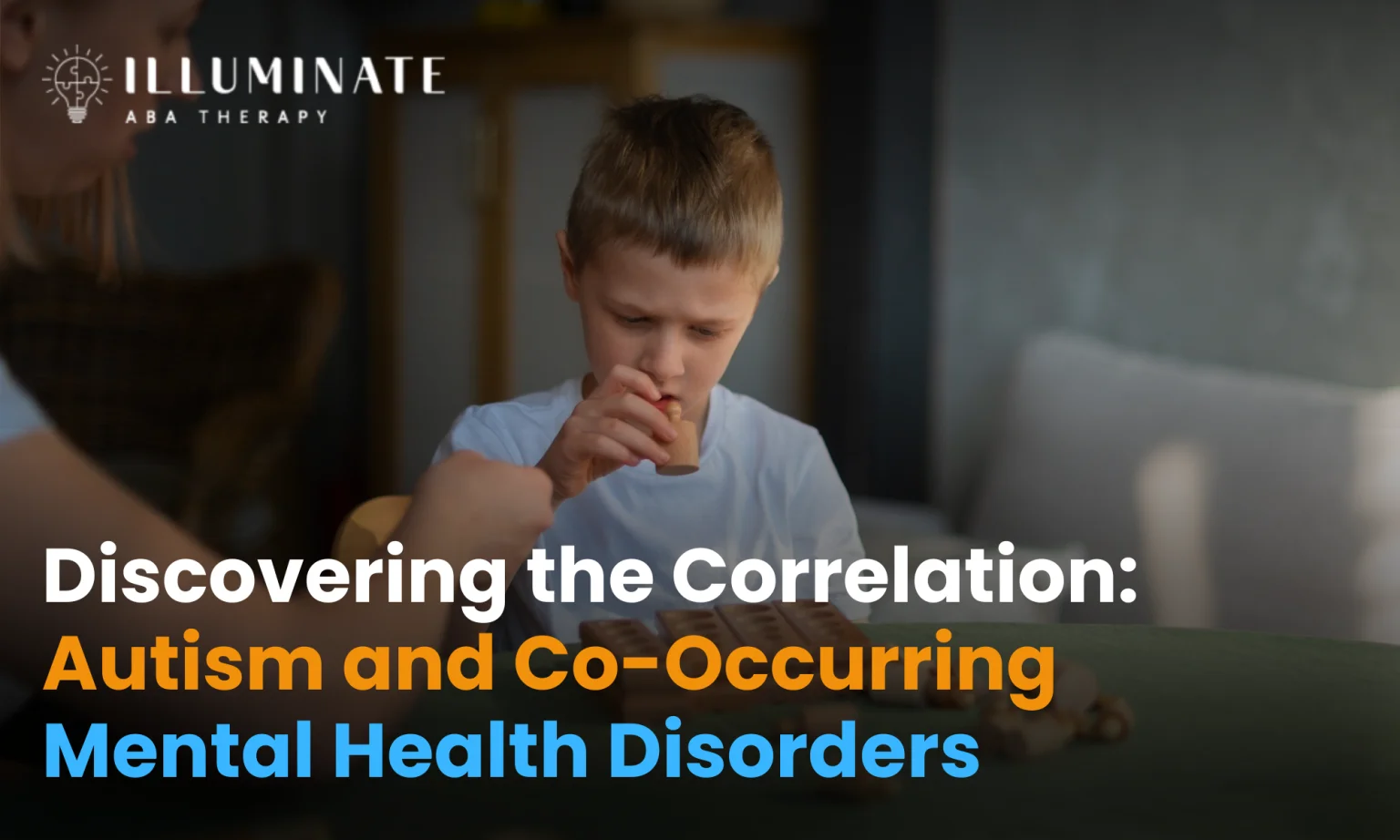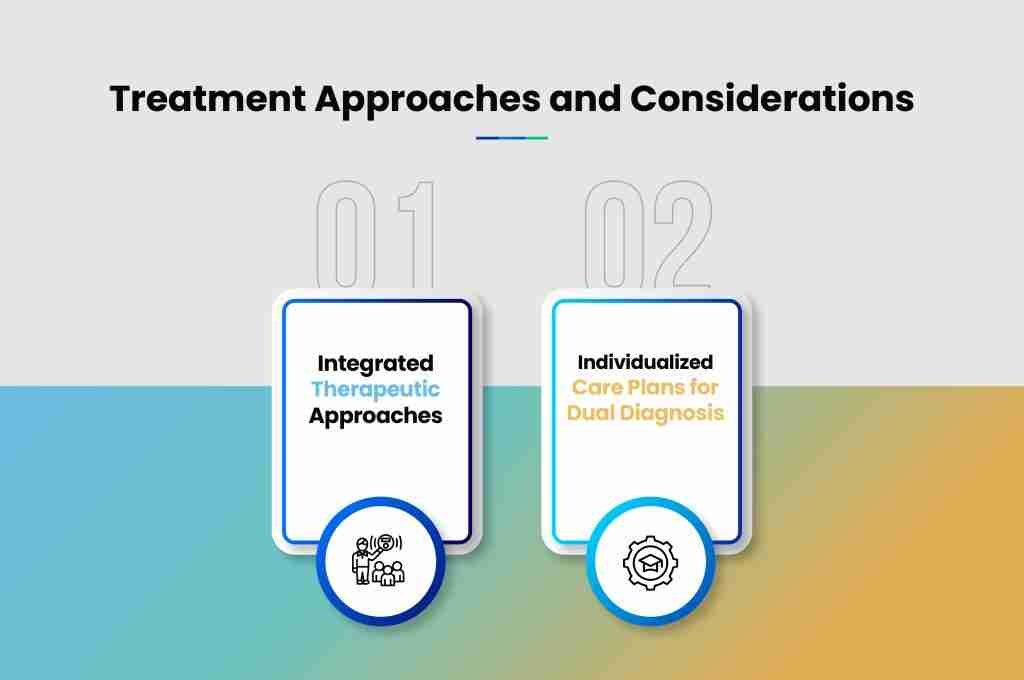Discovering the Correlation: Autism and Co-Occurring Mental Health Disorders
ABA TherapyJuly 17, 2025

Understanding Autism and Mental Health
When exploring the intricate relationship between autism spectrum disorder (ASD) and mental health, it is vital to first grasp the fundamentals of ASD and recognize the common co-occurring mental health disorders that often accompany it.
Overview of Autism Spectrum Disorder (ASD)
Autism Spectrum Disorder (ASD) is a neurodevelopmental condition characterized by challenges in communication, social interaction, and repetitive behavior patterns. Individuals with ASD may exhibit a wide range of strengths and difficulties, leading to a unique spectrum of abilities and needs.
ASD is diagnosed based on specific criteria outlined in the Diagnostic and Statistical Manual of Mental Disorders (DSM-5). The diagnosis considers the presence and severity of deficits in social communication and interaction, as well as restricted and repetitive behaviors.
Common Co-Occurring Mental Health Disorders
Individuals with autism often experience co-occurring mental health conditions that can significantly impact their overall well-being. Some of the most prevalent co-occurring mental health disorders in individuals with ASD include:
Mental Health Disorder
Prevalence Rate in Autism (%)
Anxiety Disorders
40-60
Attention Deficit Hyperactivity Disorder (ADHD)
30-80
Depression
7-70
Obsessive-Compulsive Disorder (OCD)
17-32
Bipolar Disorder
5-15
The presence of these co-occurring mental health disorders can complicate the management of autism and may require a comprehensive and tailored approach to intervention. Early identification and intervention play a crucial role in supporting individuals with autism who are also dealing with these additional mental health challenges. For more information on how recognizing these symptoms can lead to effective support strategies, refer to our article on how to effectively collaborate with schools for ABA support.
The Relationship Between Autism and Mental Health
Understanding the complex relationship between autism and mental health is crucial for providing comprehensive support to individuals with autism spectrum disorder (ASD). This section explores the factors contributing to this connection and delves into the impact of co-occurring mental health disorders on individuals with autism.
Factors Contributing to the Link
The link between autism and mental health is multifaceted and influenced by various factors. Individuals with ASD may experience challenges in social communication, sensory processing, and behavioral regulation, which can predispose them to co-occurring mental health conditions. Additionally, the neurobiological differences associated with autism may contribute to the development of mental health disorders.
Research indicates that individuals with autism are at a higher risk of developing conditions such as anxiety disorders, depression, attention-deficit/hyperactivity disorder (ADHD), and obsessive-compulsive disorder (OCD) compared to the general population. The presence of these co-occurring disorders can significantly impact the well-being and quality of life of individuals with autism, highlighting the importance of early identification and intervention.
Impact of Co-Occurring Disorders on Individuals with Autism
The impact of co-occurring mental health disorders on individuals with autism can be profound and may exacerbate existing challenges associated with ASD. For example, anxiety disorders can heighten sensory sensitivities and increase social difficulties, leading to heightened levels of stress and emotional dysregulation.
Depressive symptoms can also manifest differently in individuals with autism, presenting as changes in behavior, sleep disturbances, or increased irritability. Moreover, conditions such as ADHD can impact attention, impulse control, and hyperactivity levels, further complicating the management of symptoms and behaviors in individuals with autism.
Recognizing the signs and symptoms of co-occurring mental health disorders in individuals with autism is essential for tailored intervention strategies and support. Early identification, diagnosis, and appropriate treatment options can help mitigate the impact of these co-occurring conditions and improve the overall well-being and functioning of individuals with autism.
By understanding the factors contributing to the link between autism and mental health and addressing the impact of co-occurring disorders, healthcare providers, educators, and caregivers can better support individuals with autism in their unique developmental journey. For more information on interventions and strategies for individuals with autism, explore our articles on using video modeling to enhance social skills in autism and the impact of music therapy on children with autism: an ABA perspective.
Identifying and Managing Co-Occurring Disorders
For individuals with autism, understanding and addressing co-occurring mental health disorders are essential for comprehensive care and support. Recognizing the symptoms and signs of these co-occurring disorders is crucial in providing timely intervention and tailored treatment. Additionally, early identification and intervention play a significant role in enhancing the overall well-being of individuals with autism.
Recognizing Symptoms and Signs
Identifying co-occurring mental health disorders in individuals with autism can be challenging due to overlapping symptoms and communication difficulties. Some common co-occurring disorders include anxiety disorders, depression, ADHD, and schizophrenia. It's important for caregivers and professionals to observe and document behaviors that may indicate the presence of a co-occurring disorder.
Co-Occurring Disorder
Symptoms and Signs
Anxiety Disorders
Excessive worrying, social withdrawal, repetitive behaviors
Depression
Persistent sadness, loss of interest, changes in sleep or appetite
ADHD
Inattention, hyperactivity, impulsivity
Schizophrenia
Hallucinations, delusions, disorganized thinking
By closely monitoring and documenting changes in behavior, mood, or functioning, caregivers and professionals can facilitate early detection and intervention for co-occurring disorders. Collaborating with mental health professionals and specialists can aid in accurate diagnosis and tailored treatment plans.
Importance of Early Intervention and Support
Early intervention is key in effectively managing co-occurring mental health disorders in individuals with autism. Timely identification and intervention can prevent exacerbation of symptoms and improve long-term outcomes. Providing a supportive and inclusive environment that addresses both autism and co-occurring disorders is crucial for overall well-being.
Interventions may include a combination of behavioral therapies, medication management, social skills training, and support services. Individualized care plans that consider the unique needs and challenges of each individual play a pivotal role in enhancing treatment effectiveness and quality of life.
By recognizing the symptoms and signs of co-occurring disorders and prioritizing early intervention and support, caregivers and professionals can optimize outcomes for individuals with autism. It is essential to approach treatment holistically, considering both the autism spectrum disorder and any co-occurring mental health conditions. For more insights on supporting individuals with autism, explore our article on using video modeling to enhance social skills in autism.
Treatment Approaches and Considerations

When addressing the complex relationship between autism and co-occurring mental health disorders, it is crucial to explore effective treatment approaches that cater to the unique needs of individuals with dual diagnoses. Two primary strategies involve integrated therapeutic approaches and the development of individualized care plans tailored to each person's specific requirements.
Integrated Therapeutic Approaches
Integrated therapeutic approaches are essential in providing comprehensive care for individuals with autism and co-occurring mental health conditions. These approaches involve combining various therapeutic modalities to address both the core symptoms of autism and the associated mental health challenges. By integrating interventions such as Applied Behavior Analysis (ABA) therapy, cognitive-behavioral therapy (CBT), speech therapy, and occupational therapy, individuals can receive holistic support that targets multiple areas of need.
A collaborative and multidisciplinary approach is at the core of integrated therapeutic interventions. This teamwork ensures that professionals from different fields work together to develop cohesive treatment plans that address the unique strengths and challenges of each individual. Additionally, continuous communication and coordination among the treatment team members are vital to ensure consistent and effective care.
Individualized Care Plans for Dual Diagnosis
Individualized care plans are key in providing targeted support for individuals with autism and co-occurring mental health disorders. These plans are developed based on a thorough assessment of the individual's specific needs, strengths, preferences, and goals. By tailoring interventions to the unique profile of each person, caregivers and clinicians can optimize the effectiveness of the treatment while respecting the individual's autonomy and agency.
Individualized care plans often incorporate a combination of evidence-based practices, personalized goals, structured routines, and adaptive strategies to promote positive outcomes. These plans may include specific behavior management techniques, communication strategies, social skills training, sensory integration activities, and coping mechanisms tailored to address the dual diagnosis effectively.
By creating individualized care plans, caregivers and practitioners can empower individuals with autism and co-occurring mental health disorders to thrive and reach their full potential. These plans serve as roadmaps for guiding intervention strategies, monitoring progress, and making necessary adjustments to ensure continued growth and development.
In conclusion, the utilization of integrated therapeutic approaches and individualized care plans is instrumental in supporting individuals with autism and co-occurring mental health disorders. By implementing these strategies thoughtfully and collaboratively, caregivers and clinicians can make a significant impact on the well-being and quality of life of individuals with dual diagnoses.
